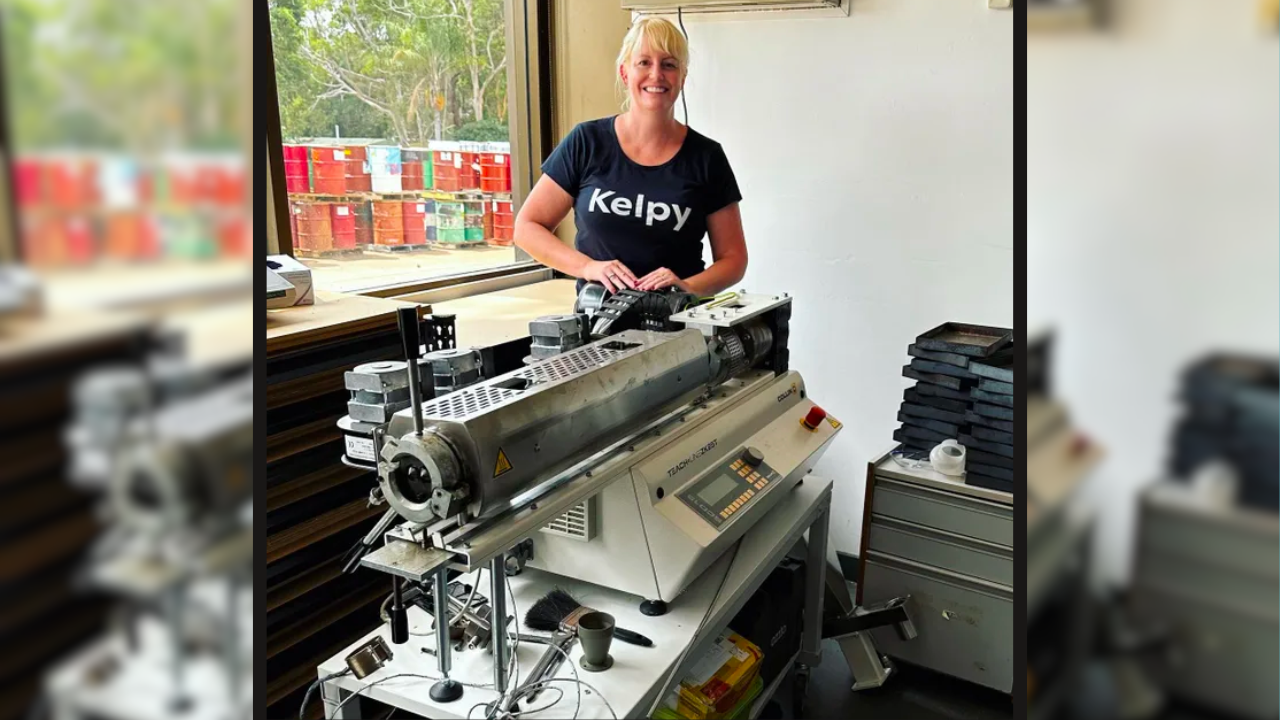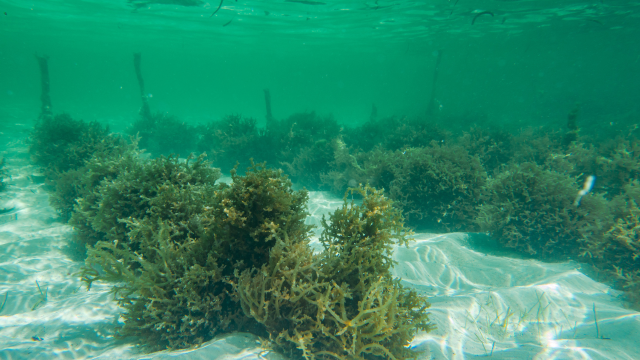Kelpy is an Australian startup that turns seaweed into biopellets that can be used to replace plastic.
In a world where the environment is struggling to keep up with the human race, solutions to problems that are almost too far gone are hard to come by.
Microplastics and the devastation of marine ecosystems are just a few of the issues that Kelpy is hoping to help-y.

Where does Kelpy get its seaweed?
Kelpy manufactures its biopellets by farming seaweed, but even this is sustainably sourced. The seaweed that Kelpy uses is regeneratively farmed or are invasive species. It’s also not just from Australian oceans. Seaweed from around the globe is used in the creation of these bioplastics. This means that Kelpy could potentially be expanded to other countries.
The company also make sure to only use seaweed that isn’t used in the production of food or specific marine ecosystems, resulting in no disruption to human economies or natural systems.
In addition, Kelpy has created its biopellets to be compatible with current plastic manufacturing machinery, so businesses won’t need to spend money updating their equipment. According to Fionnuala Quin, Kelpy’s founder, manufacturers only need to switch out their current plastic pellets with the seaweed pellets to start creating biopackaging.
Biopackaging for anything
Kelpy biopellets can be used to “create rigid and flexible applications” explains Quin. This means that almost any manufacturer can use the Kelpy pellets to make their packaging. Shampoo bottles, makeup packaging, food containers, and even soft plastic bags, sachets, and films.

While some bioplastics won’t break down in the ocean, Kelpy biopellets are made of 100 per cent renewable materials. It’s all just seaweed. The company is also already working with large manufacturers. Colgate-Palmolive and Unilever are starting to make changes in the materials they use for the packaging of their products.
Quin isn’t done working though. “Our team has come a long way really fast. We’ve had huge success in pushing the science forward, but one of the challenges [is] to make sure we have ready partners that can supply the volumes required for a new material like this.”
Hopefully, we’ll see Kelpy on our supermarket shelves soon.
